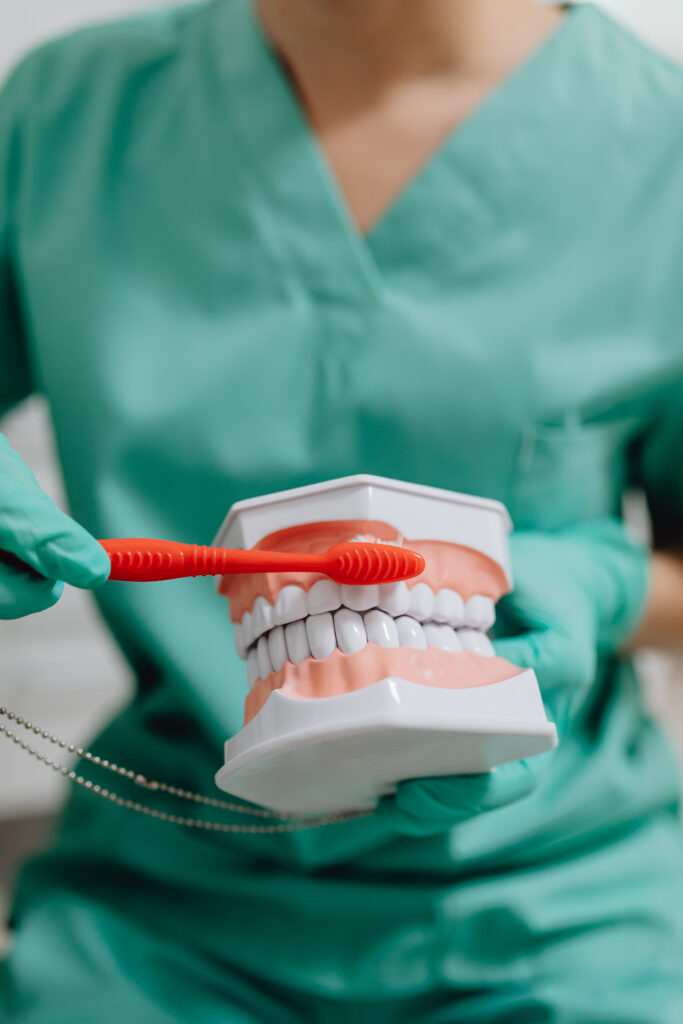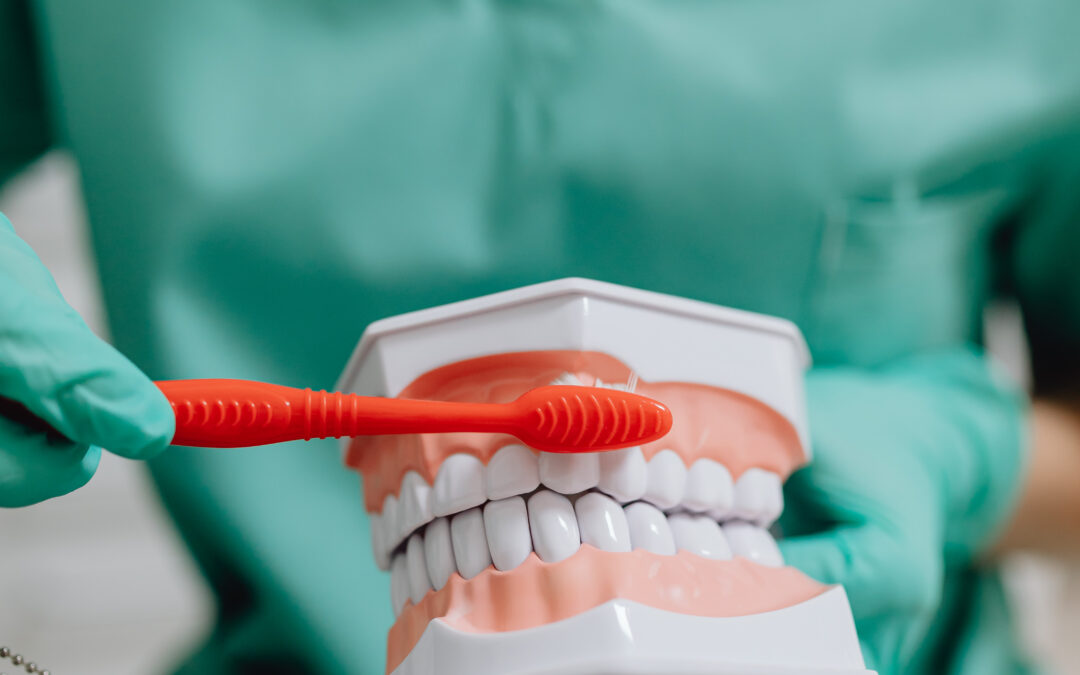Are you a dental professional looking to boost your patient acquisition? Look no further! In this article, we will explore the power of Dental SEO and how it can help you attract more patients to your practice. By targeting dentists and orthodontists who are searching for an SEO agency, you can enhance your online presence and increase your visibility to potential patients. And for those based in Philadelphia, we have an agency right in your backyard – Ortho Advertising. Get ready to discover the secrets of optimizing your dental website and driving more traffic to your practice.

Understanding Dental SEO
What is Dental SEO?
Dental SEO refers to the practice of optimizing dental websites for search engines in order to improve their visibility and ranking in search engine results pages (SERPs). It involves various strategies and techniques designed to attract more organic traffic to dental websites and increase patient acquisition.
Why is Dental SEO important?
Dental SEO is important because it helps dental practices improve their online presence and reach a larger audience. In today’s digital age, most people search for dental services online, and having a strong online presence is crucial for attracting new patients. By implementing effective dental SEO strategies, dental practices can increase their visibility in search engines, outrank competitors, and ultimately drive more traffic to their websites.
Benefits of Dental SEO
There are several benefits of implementing dental SEO strategies for dental practices. Firstly, it helps improve the visibility and ranking of dental websites in search engines, making it easier for potential patients to find them. Secondly, dental SEO helps build trust and credibility among potential patients by ensuring that the website appears in relevant search results. Thirdly, dental SEO can lead to increased organic traffic, which can result in more patient inquiries and appointments. Finally, dental SEO can provide long-term benefits by establishing a strong online presence and consistently attracting new patients.
How Dental SEO differs from general SEO
While general SEO strategies focus on improving the visibility and ranking of websites in search engines, dental SEO specifically targets dental practices and their unique needs. Dental SEO involves understanding the specific keywords, search queries, and behaviors of patients looking for dental services. It also involves optimizing dental websites for local search, as dental practices primarily serve a local community. Dental SEO strategies may also include creating dental-specific content, incorporating dental FAQs, and utilizing dental-specific keywords for better targeting.
Key Components of Dental SEO
Website Optimization
Website optimization is a crucial component of dental SEO. It involves ensuring that the dental website is properly structured, organized, and easy to navigate. This includes optimizing the website’s URL structure, meta tags, headings, and internal linking. By optimizing the website’s structure and elements, dental practices can provide a better user experience, improve search engine crawling and indexing, and ultimately boost their ranking in search results.
Keyword Research
Keyword research plays a vital role in dental SEO. It involves identifying the specific keywords and search terms that potential patients are using to find dental services. By conducting thorough keyword research, dental practices can understand the language and phrases used by their target audience, and optimize their website and content accordingly. This helps improve the relevancy of the website in search results and increases the chances of appearing when potential patients search for dental services.
Content Creation and Optimization
Content creation and optimization are essential for dental SEO. Creating high-quality and relevant content that addresses the needs and queries of potential patients is crucial for attracting organic traffic and improving search engine visibility. Dental practices can create informative blog posts, articles, and frequently asked questions (FAQs) that provide valuable information to potential patients. By optimizing this content with relevant keywords, dental practices can improve their chances of ranking higher in search results and attracting more patients.
Local SEO for Dental Practices
Local SEO is a critical aspect of dental SEO, as dental practices primarily serve a specific local community. Optimizing dental websites for local search involves targeting location-specific keywords, optimizing Google My Business listings, getting listed in online directories, managing online reviews and ratings, and utilizing schema markup. By implementing effective local SEO strategies, dental practices can ensure that their website appears prominently in local search results, helping them attract more patients from their target area.
Mobile Optimization
Mobile optimization is crucial for dental websites, as an increasing number of people access the internet using mobile devices. Optimizing dental websites for mobile ensures that they are responsive, user-friendly, and provide a seamless experience across different devices. This includes optimizing page loading speed, implementing responsive design, and utilizing mobile-specific keywords. By providing a great mobile experience, dental practices can improve their search engine ranking and attract more patients who are searching for dental services on their smartphones or tablets.
Technical SEO for Dental Websites
Technical SEO involves optimizing the technical aspects of a dental website to improve its search engine visibility and performance. This includes ensuring proper website crawling and indexing, optimizing URL structure, implementing XML sitemaps, ensuring website security, managing duplicate content, and optimizing internal and external linking. By addressing these technical aspects, dental practices can enhance their website’s performance, improve their search engine ranking, and provide a better user experience for potential patients.

Optimizing Your Dental Website
Design and User Experience
When optimizing your dental website, it is important to focus on design and user experience. A well-designed website that is visually appealing, easy to navigate, and responsive on different devices can greatly enhance the user experience. Consider using a clean and intuitive layout, clear fonts, and high-quality images that reflect your dental practice. Make sure that your website is mobile-friendly and loads quickly to keep visitors engaged and encourage them to explore further.
Optimizing Page Titles and Meta Descriptions
Page titles and meta descriptions play a crucial role in dental SEO. Each page on your website should have a unique, descriptive, and keyword-rich title that accurately reflects the content of the page. Meta descriptions provide a brief summary of the page’s content and should also be optimized with relevant keywords. By optimizing page titles and meta descriptions, you can improve your website’s visibility in search results and increase the chances of attracting clicks from potential patients.
Creating Engaging and Informative Content
Content is king when it comes to dental SEO. Creating high-quality, engaging, and informative content is essential for attracting organic traffic and establishing your dental practice as an authoritative source of information. Consider creating blog posts, articles, and FAQs that address common dental concerns, provide helpful tips, and showcase your expertise. Incorporate relevant keywords naturally throughout your content to improve its search engine visibility and increase the chances of ranking higher in search results.
Implementing Proper Header Tags
Header tags, such as H1, H2, and H3, play a crucial role in organizing and structuring your dental website’s content. Properly using header tags helps search engines understand the hierarchy and importance of different sections of your content. Use H1 tags for main headings, H2 tags for subheadings, and H3 tags for further divisions within the content. By implementing proper header tags, you can improve your website’s readability, user experience, and search engine optimization.
Optimizing Images and Alt Text
Images are an important element of dental websites, but they can also affect website performance if not optimized correctly. Optimize your images by compressing them without compromising image quality, using descriptive file names, and adding alt text. Alt text is a brief description of the image that helps search engines understand its content. By optimizing images and alt text, you can improve your website’s loading speed, accessibility, and search engine visibility.
Improving Website Loading Speed
Website loading speed is crucial for both user experience and search engine optimization. A slow-loading website can deter potential patients and negatively impact your search engine ranking. Optimize your website’s loading speed by compressing images, minimizing CSS and JavaScript files, enabling browser caching, and utilizing a content delivery network (CDN). Regularly monitor and optimize your website’s loading speed to ensure a fast and seamless experience for visitors.
Keyword Research for Dental SEO
Importance of Keyword Research
Keyword research is vital for dental SEO as it helps identify the specific keywords and search terms that potential patients are using to find dental services. By understanding the language and phrases used by your target audience, you can tailor your website and content to match their search queries. Keyword research allows you to optimize your website for relevant keywords, improve its search engine visibility, and attract more organic traffic.
Identifying Target Keywords for Dental Practices
To identify target keywords for dental practices, it is important to consider the services and treatments offered, as well as the specific location of the practice. For example, if your dental practice specializes in orthodontics and is located in Philadelphia, target keywords could include “orthodontist in Philadelphia,” “braces in Philadelphia,” or “orthodontic treatments in Philadelphia.” Conduct thorough keyword research using tools like Google Keyword Planner, SEMrush, or Moz to identify the most relevant and frequently searched keywords for your dental practice.
Tools for Keyword Research
There are various tools available to assist with keyword research for dental SEO. Google Keyword Planner is a free tool provided by Google that allows you to find keywords related to your dental practice and provides data on search volume and competition. SEMrush and Moz are paid tools that offer more comprehensive keyword research capabilities, including competitor analysis, keyword difficulty scores, and keyword trend data. These tools can help you identify and prioritize the most relevant and valuable keywords for your dental practice.
Analyzing Competitor Keywords
Analyzing competitor keywords can provide valuable insights and help you identify new keyword opportunities for your dental practice. By analyzing what keywords your competitors are targeting and ranking for, you can gain an understanding of the competitive landscape and identify gaps or areas where you can differentiate yourself. Tools like SEMrush and Moz offer competitor analysis features that allow you to see which keywords your competitors are ranking for, their search volume, and their organic traffic potential. This information can help inform your own keyword targeting strategy and improve your search engine visibility.

Content Creation and Optimization
Creating High-Quality and Relevant Content
Creating high-quality and relevant content is crucial for dental SEO. High-quality content helps establish your dental practice as a trusted authority and resource in the field. It should be informative, accurate, and address the needs and concerns of your target audience. Consider creating content that answers common dental questions, provides tips for maintaining oral health, and educates potential patients about different dental treatments and procedures. By consistently creating valuable content, you can attract organic traffic, build trust, and establish yourself as a go-to source for dental information.
Optimizing Content for Target Keywords
To optimize your content for target keywords, incorporate them naturally throughout your text. Avoid overstuffing keywords, as this can negatively impact readability and search engine optimization. Aim for a keyword density of around 1% to 2% and ensure that your keywords are relevant to the content and context. Include your target keywords in headings, subheadings, and meta tags, as well as within the body of your content. By optimizing your content for target keywords, you can improve its search engine visibility and increase the chances of ranking higher in search results.
Structuring Content for Readability
Structuring your content for readability is important for both user experience and search engine optimization. Break up your content into organized sections using headings, subheadings, and bullet points. This makes it easier for readers to scan and navigate your content, and also helps search engines understand the structure of your content. Use clear and concise sentences, avoid complex jargon, and provide a logical flow to your content. By structuring your content for readability, you can improve engagement, retain readers’ attention, and enhance your search engine optimization efforts.
Incorporating Dental FAQs and Education
Incorporating dental FAQs (Frequently Asked Questions) and educational content is a great way to provide valuable information to potential patients and improve your dental SEO. Consider creating a dedicated FAQ section on your website, addressing common questions and concerns related to dental treatments, procedures, and oral health. Additionally, create informative articles, blog posts, or videos that educate your audience about various dental topics. By incorporating dental FAQs and education into your content strategy, you can attract organic traffic from people seeking answers and position yourself as a knowledgeable resource within the dental industry.
Utilizing Blogging for Dental Practices
Blogging is an effective way to consistently create fresh and engaging content for your dental practice. Consider setting up a blog on your dental website and regularly publish articles, tips, and updates related to dental health and treatments. Blogging not only provides valuable information to potential patients but also helps improve your search engine optimization. Each blog post presents an opportunity to target different keywords, attract organic traffic, and showcase your expertise. By utilizing blogging as part of your content strategy, you can enhance your dental SEO efforts and attract a larger online audience.
Local SEO Strategies for Dental Practices
Setting up and Optimizing Google My Business
Setting up and optimizing your Google My Business (GMB) listing is crucial for local dental SEO. GMB is a free tool provided by Google that allows you to create a business profile that appears in Google search results and Google Maps. Ensure that your GMB profile is complete, accurate, and up-to-date with the essential information about your dental practice, such as its name, address, phone number, website, and hours of operation. Regularly monitor and respond to reviews, as positive reviews can improve your local search ranking and attract more patients.
Getting Listed in Online Directories
Getting listed in online directories is another important local SEO strategy for dental practices. There are numerous online directories, such as Yelp, Healthgrades, and Yellow Pages, that allow you to create a business profile and provide information about your dental practice. Ensure that your business information is consistent across all directories and that your profiles are complete and optimized. Getting listed in reputable online directories can increase your online visibility, improve your local search ranking, and attract more patients.
Managing Online Reviews and Ratings
Managing online reviews and ratings is an essential aspect of local dental SEO. Encourage your patients to leave reviews and ratings on platforms such as Google, Yelp, and Healthgrades. Respond to reviews, both positive and negative, in a professional and timely manner to show potential patients that you value their feedback and are committed to their satisfaction. Positive reviews can improve your search engine visibility and attract more patients, while negative reviews provide an opportunity to address concerns and improve your practice.
Targeting Local Keywords
Targeting local keywords is crucial for dental practices that primarily serve a specific local community. Incorporate location-specific keywords throughout your website and content to improve your local search ranking. For example, if your dental practice is located in Philadelphia, target keywords could include “dentist in Philadelphia,” “dental services in Philadelphia,” or “Philadelphia dental clinic.” Consider creating location-specific landing pages or service pages that highlight your dental practice’s presence in the local community. By targeting local keywords, you can increase your visibility among local searchers and attract more patients from your target area.
Utilizing Schema Markup
Schema markup is a type of code that can be added to your dental website to provide search engines with additional information about the content of your web pages. It helps search engines understand the context and purpose of your content, which can lead to better search engine visibility and more accurate search results. Utilize schema markup to highlight important information about your dental practice, such as your location, contact information, services offered, and patient reviews. By utilizing schema markup, you can enhance your local dental SEO and increase your chances of appearing prominently in search results.
Building Local Citations
Building local citations is an effective way to improve your local dental SEO. A local citation is any online mention of your dental practice’s name, address, and phone number (NAP) on a relevant website or directory. Ensure that your NAP information is consistent across all citations and that your profiles are accurate and up-to-date. Building local citations on reputable websites and directories, such as local chamber of commerce websites or industry-specific directories, can improve your local search ranking and increase your visibility among local searchers.

Mobile Optimization for Dental Websites
Importance of Mobile-Friendly Websites
Mobile optimization is crucial for dental websites because a large percentage of internet users access the internet using mobile devices. A mobile-friendly website ensures that it is responsive, visually appealing, and user-friendly on different screen sizes and devices. By providing a seamless mobile experience, you can cater to the needs of your mobile audience and improve their overall user experience. Additionally, search engines prioritize mobile-friendly websites in their search results, making mobile optimization an important factor for improving your search engine ranking.
Responsive Design for Dental Practices
Implementing a responsive design is an essential part of mobile optimization for dental practices. A responsive design allows your dental website to automatically adjust and adapt to different screen sizes and devices, providing an optimal viewing experience for mobile users. Ensure that your website’s layout, images, and content are responsive and that they resize and reorganize themselves according to the device being used. By implementing a responsive design, you can improve your website’s user experience, reduce bounce rates, and increase the chances of attracting and retaining mobile users.
Improving Mobile Page Speed
Mobile page speed is crucial for providing a fast and seamless experience for mobile users. Slow-loading websites can lead to higher bounce rates and negatively impact user experience. Optimize your dental website’s mobile page speed by compressing images, minimizing CSS and JavaScript files, enabling browser caching, and utilizing AMP (Accelerated Mobile Pages) where appropriate. Regularly monitor and test your website’s mobile page speed using tools like Google PageSpeed Insights or GTmetrix, and make necessary optimizations to ensure a fast and smooth browsing experience for mobile users.
Optimizing Mobile User Experience
Optimizing the mobile user experience goes beyond responsive design and fast page speed. Pay attention to factors that can enhance the overall mobile experience for users. This includes ensuring that your website’s navigation is easy to use and accessible, buttons and links are large enough for mobile users to tap on, and forms are optimized for mobile input. Consider using click-to-call buttons to make it easy for mobile users to contact your dental practice and provide clear and concise information that can be easily viewed on a small screen. By optimizing the mobile user experience, you can provide a positive impression to mobile users and encourage them to engage with your dental practice.
Utilizing Mobile-Specific Keywords
Utilizing mobile-specific keywords in your dental SEO strategy can help you attract potential patients who are using their smartphones or tablets to search for dental services. Mobile-specific keywords can include phrases like “near me,” “on my phone,” or “on my mobile device.” Incorporate these keywords naturally throughout your website and content to improve your visibility among mobile searchers. By utilizing mobile-specific keywords, you can tailor your dental SEO strategy to capture a mobile audience and increase the chances of attracting mobile users who are actively searching for dental services.
Technical SEO Considerations for Dental Websites
Website Crawling and Indexing
Website crawling and indexing is an essential part of technical SEO for dental websites. Search engines use crawlers to discover and analyze web pages, and then index them in their search results. Ensure that your dental website is properly indexed by search engines by creating and submitting an XML sitemap. This will help search engines understand the structure of your website and index your pages more efficiently. Regularly monitor your website’s crawling and indexing status using tools like Google Search Console to identify and fix any issues that may prevent search engines from properly crawling and indexing your dental website.
Optimizing URL Structure
Optimizing your dental website’s URL structure improves both user experience and search engine optimization. Use clear and descriptive URLs that accurately reflect the content of the page. Avoid using generic or meaningless URLs, and instead include relevant keywords and terms. For example, instead of using a URL like “yourdentalpractice.com/page1,” use a URL like “yourdentalpractice.com/dental-services/orthodontics” to highlight the specific content of the page. By optimizing your URL structure, you can improve your website’s user-friendliness, search engine visibility, and overall SEO performance.
Implementing XML Sitemaps
Implementing XML sitemaps is crucial for dental websites, as they help search engines understand the structure and content of your website. An XML sitemap is a file that lists all the pages on your dental website and provides valuable metadata about each page. By creating and submitting an XML sitemap to search engines, you can ensure that all of your website’s pages are properly discovered and indexed. This helps search engines crawl and understand your website more effectively, improving your search engine visibility and the chances of ranking higher in search results.
Ensuring Website Security
Website security is an essential consideration for dental practices, as patient information and personal data may be collected and stored on your website. Ensure that your dental website has proper security measures in place, such as SSL (Secure Sockets Layer) certificates, to encrypt and secure data transmission between your website and users’ browsers. Regularly update your website’s software and plugins, use strong and unique passwords, and regularly back up your website to prevent security breaches and ensure the safety of your patients’ information.
Managing Duplicate Content
Managing duplicate content is important for dental SEO, as search engines may penalize websites that have duplicate or copied content. Duplicate content refers to blocks of content that are identical or substantially similar to content found on other web pages. Ensure that your dental website does not have duplicate content by regularly auditing and updating your content. Use canonical tags to indicate the preferred version of a page if there are multiple versions with similar content. By managing duplicate content, you can improve your website’s search engine visibility and ranking potential.
Optimizing Internal and External Linking
The way you optimize internal and external linking within your dental website can greatly impact your search engine optimization efforts. Internal linking refers to linking to other pages within your website, providing navigation and context for users and search engines. Ensure that your internal links are relevant, use descriptive anchor text, and point to valuable and related content. External linking refers to linking to relevant and authoritative websites from your dental website. By linking to reputable sources, you provide additional value to your users and help search engines determine the relevancy and authority of your content.

Tracking and Analyzing Dental SEO Performance
Setting up Google Analytics
Setting up Google Analytics is essential for tracking and analyzing the performance of your dental SEO efforts. Google Analytics provides valuable insights into website traffic, user behavior, and conversions. By integrating Google Analytics with your dental website, you can track the number of visitors, their geographic location, the sources of traffic, and the pages that are performing well. This data can help you identify areas for improvement, optimize your website, and make informed decisions to enhance your dental SEO strategy.
Monitoring Website Traffic and Rankings
Monitoring website traffic and rankings is an important aspect of dental SEO performance analysis. Regularly track and analyze the traffic to your dental website, including the number of visitors, pageviews, bounce rates, and average session duration. Monitor your website’s rankings for target keywords to evaluate the effectiveness of your SEO efforts. Use tools like Google Search Console or third-party SEO software to track website traffic and rankings, and identify trends and areas for improvement.
Analyzing Conversion Rates
Analyzing conversion rates is crucial for determining the success of your dental SEO strategy. A conversion can be defined as a desired action taken by a website visitor, such as filling out a contact form, scheduling an appointment, or making a purchase. Track and analyze the conversion rates of different conversion actions on your dental website to determine their effectiveness. This data can help you identify areas for improvement, optimize your website’s conversion funnels, and implement strategies to increase conversions and maximize the return on your dental SEO investment.
Measuring Return on Investment (ROI)
Measuring the return on investment (ROI) of your dental SEO efforts allows you to assess the financial impact of your SEO strategy. Calculate the ROI by comparing the total cost of your dental SEO campaign with the revenue generated as a result. Consider the value of new patient acquisitions, appointments booked, or procedures performed as metrics to measure the success of your dental SEO efforts. By measuring ROI, you can determine the effectiveness of your SEO strategy, identify areas for improvement, and make informed decisions about the allocation of your marketing budget.
Hiring a Dental SEO Agency
The Role of Dental SEO Agencies
Dental SEO agencies specialize in providing SEO services specifically tailored to the needs of dental practices. These agencies have the knowledge, experience, and tools necessary to optimize dental websites, improve search engine visibility, and attract more patients. Dental SEO agencies typically offer a range of services such as website optimization, keyword research, content creation, local SEO, mobile optimization, and technical SEO. By hiring a dental SEO agency, dental practices can benefit from expert guidance and strategies that are specifically designed to enhance their online presence and attract new patients.
Factors to Consider when Choosing an Agency
When choosing a dental SEO agency, there are several factors to consider to ensure you make the right decision for your dental practice. Firstly, consider the agency’s experience and expertise in dental SEO. Look for agencies that have a proven track record of success in helping dental practices improve their search engine visibility and attract more patients. Secondly, consider the agency’s approach and strategies. Ensure that their approach aligns with your dental practice’s goals and values. Additionally, consider the agency’s communication and reporting processes, as well as their pricing structure. By thoroughly evaluating these factors, you can make an informed decision and choose the dental SEO agency that best meets your needs and helps you achieve your marketing goals.
Ortho Advertising in Philadelphia
Ortho Advertising is a dental SEO agency located in Philadelphia that specializes in providing SEO services for dentists and orthodontists. With their expertise in dental SEO and their understanding of the Philadelphia market, Ortho Advertising can help dental practices in the area improve their online presence and attract more patients. They offer a range of services including website optimization, keyword research, content creation, local SEO, mobile optimization, and technical SEO. By partnering with Ortho Advertising, dental practices in Philadelphia can benefit from tailored strategies and expert guidance to enhance their dental SEO efforts.
Case Studies and Success Stories
When choosing a dental SEO agency, it is important to review their case studies and success stories to gauge their effectiveness and the potential impact on your dental practice. Case studies and success stories provide real-world examples of how the agency has helped other dental practices improve their online visibility and attract more patients. Look for case studies that demonstrate significant improvements in search engine rankings, organic traffic, and patient acquisition. These examples can give you confidence in the agency’s abilities and provide insights into how their strategies and techniques can be applied to your dental practice.

